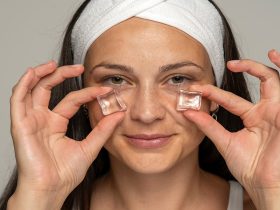Dentures, gum disease, and cavities are not the only factors that affect oral health. A person’s mouth health has been linked to their overall health, according to research. Dental issues are regarded as a global health concern.
Defects in the gums or tooth decay can cause pain, embarrassment, and eventually tooth loss without treatment. Malnutrition, speech issues, and other difficulties may result from these problems.
A dentist’s office as well as at-home dental care can prevent these problems. Below are some of the best practices to maintain healthy teeth and gums.
Brush Regularly
Brushing twice a day is the most effective way to keep your teeth clean and free of plaque and bacteria. People should brush correctly, however, in order for it to be effective.
Brushing should be done in small circular motions, with each tooth being brushed on the front, back, and top. It takes approximately two to three minutes to brush each tooth. Do not brush backwards and forwards.You can hire a nearby dentist like dentist orlando.
A toothbrush with hard bristles or one that brushes too hard can damage tooth enamel and gums. There is a possibility of tooth sensitivity, permanent damage to the protective enamel, and gum erosion as a result.
Soft-bristled toothbrushes are recommended by the American Dental Association (ADA). They also state that people should change their toothbrush every 3 months or when the ends start to look frayed, whichever comes first.
Use of fluoride for teeth
Fluoride has been used for teeth since the 1940s and its use is still prevalent today. It has been shown to be effective in preventing cavities and tooth decay, though some people are concerned about the potential health risks of fluoride. Fluoride can be found in water, toothpaste, supplements and other products.
fluorides are commonly used to improve the dental health of people. They act as an anticaries agent, which means they help to reduce the formation of cavities. In addition, fluoride is also beneficial for the remineralization of teeth. It helps to strengthen the enamel and promote tooth decay resistance.
Flossing Can Help
Flossing has been shown to be an effective way of removing plaque and bacteria from between teeth. It is important to floss at least once a day, and preferably more often. There are different types of floss available, so find one that works best for you.
The debate over whether or not to floss has been going on for years. Some people believe that it is important to floss every day, while others feel that it is not necessary. The good news is that there is no definitive answer as to whether or not flossing in the mouth is effective at removing dental plaque and bacteria. However, there are a number of studies that suggest that it may be helpful in reducing the risk of dental cavities. If you are unsure whether or not you should begin flossing, speak with your dentist about what their recommendation might be.
Mouthwash Benefits
Mouthwash is an essential part of a healthy oral hygiene routine, and there are many benefits to using it. Mouthwash can help remove bacteria and plaque from your teeth and gums, which can reduce your risk of tooth decay and other oral health problems. It can also help you fight bad breath. Some mouthwashes also contain fluoride, which helps to prevent tooth decay.






